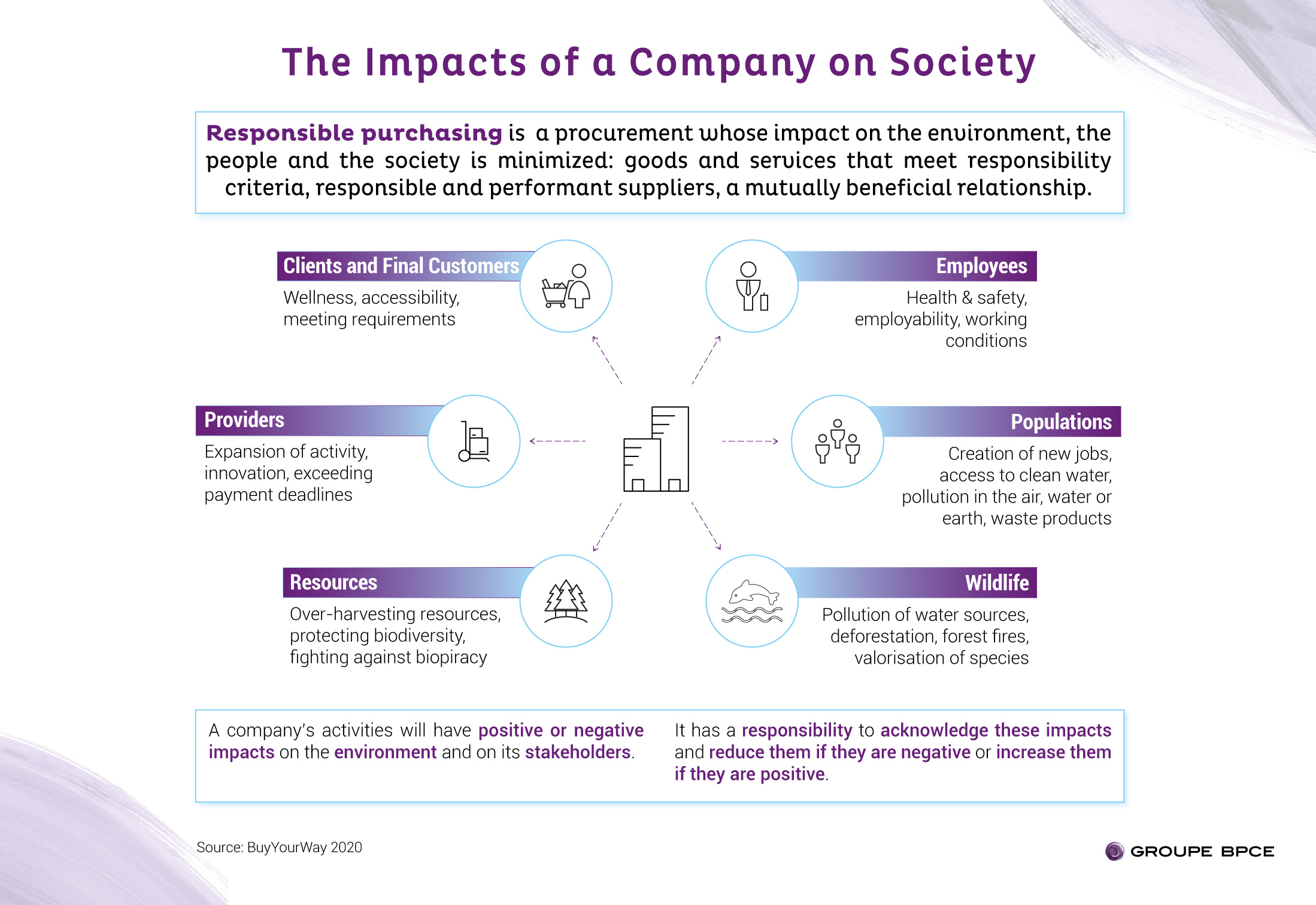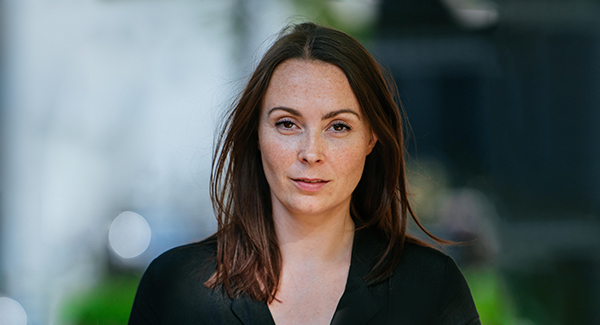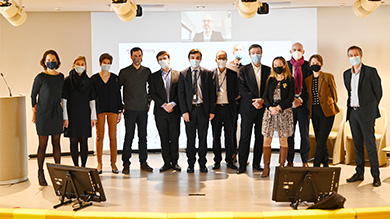Today, all the purchasing decisions made by a company related to products and services generate numerous impacts on the environment: depletion of raw materials, consumption of fossil fuels, CO2 emissions, waste products, etc. They also have a considerable effect on people and society in general, particularly on their working conditions, training and wellness. How do these new stakes in purchasing departments reflect a fundamental shift in our society and what are the keys to a successful transition? Discover the explanations from Laurence Maldonado is in charge of sustainable and responsible purchasing at BPCE Achats, the economic interest group which optimizes the expenses of the Groupe BPCE, and from Fanny Bénard is CEO of BuyYourWay, a company dedicated to responsible purchasing, and Vice-President of the French Observatory of Responsible Purchasing.
LAURENCE
MALDONADO
In charge of sustainable and responsible purchasing at BPCE Achats, the economic interest group which optimizes the expenses of the Groupe BPCE.
FANNY
BéNARD
CEO of BuyYourWay, a company dedicated to responsible purchasing, and Vice-President of the French Observatory of Responsible Purchasing.
An Increased Awareness
Since the introduction of the SAPIN II law in 2016 which prevents and detects signs of corruption or insider influence, and then, the following year, the French Corporate Duty of Vigilance law**, which notably addresses the impact of a business on human rights and the wellness and safety of people and protects the environment, businesses have accelerated the transformation of their own purchasing departments towards more responsible procurement.
Thanks to these laws and to the actions taken by external parties, such as clients and investors, businesses have reinforced the steps they are taking, particularly with reference to the ISO 20400 standard on sustainable procurement published in 2017. This norm implements a consistent representation of CSR in all countries and provides specific guidelines on responsible procurement, allowing companies to recognize their impact on supply chains. As well as this, forceful campaigns from NGO’s and increased media coverage continue to call on the general public about the stakes of sustainable purchasing and the accountability of both suppliers and consumers.
The responsible procurement policy of a business is now firmly implemented in its global strategy and coincides with its business model.
Key Success Factors
The increasing awareness surrounding the strategic nature of Purchasing invites companies to go further and integrate CSR criteria into each purchasing decision, according to the criteria which are taken on board.
To reach this goal, the vision and the goals must come from department heads, in order to align the purchasing objectives with those of the business whilst also employing clear and easily comparable measurement indicators. “The goal is to measure the ambitions we set out. For example, we will consider the carbon footprint of the products and services we purchase but also take CSR impacts into account for all of our consultations and decisions” explains Laurence Maldonado, Head of Sustainable and Responsible Purchasing at Groupe BPCE.
It is also crucial address budgetary constraints by emphasizing the long-term benefits of responsible purchasing. For Fanny Bénard, CEO of BuyYourWay, dedicated to responsible purchasing, and Vice-President of the French Observatory of Responsible Purchasing: “Yes, it can be more expensive in the short-term, but it will mean that the company will save money in the long-term. For example, it can help them to avoid shortages of raw materials or crises. Therefore, the overall cost for the company is lower.”

















